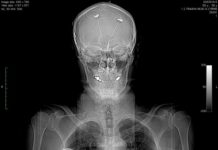Why Anti-Authoritarians Are Diagnosed as Mentally Ill
(Note: Read Bruce Levine's latest post: Anti-Authoritarians and Schizophrenia: Do Rebels Who Defy Treatment Do Better?
In my career as a psychologist, I have talked with...
After Seroquel
The topic of this article is Seroquel withdrawal: the process of withdrawal and the consequences of having taken this particular chemical for over ten...
Things Your Doctor Should Tell You About Antidepressants
The conventional wisdom is that antidepressant medications are effective and safe. However, the scientific literature shows that the conventional wisdom is flawed. While all prescription medications have side effects, antidepressant medications appear to do more harm than good as treatments for depression.
Anti-Authoritarians and Schizophrenia: Do Rebels Who Defy Treatment Do Better?
Preface: Failing in my efforts to get this article published for the general public, apparently only here can I talk about a “cool subculture...
My Story and My Fight Against Antidepressants
I’d like to share a bit about what happened to me after being placed on these medications, and how I successfully got off. Until recently, I was embarrassed to talk about my personal experiences publicly, as I’m a professional who specializes in anxiety and depression. Today, medication free, I feel better than ever before, and I am now on a mission to help my current clients get off medications, and to inform others through my writing about the dangers and pitfalls of starting antidepressants.
I Don’t Believe in Mental Illness, Do You?
In November 2000, I anxiously stood before the gathered four hundred and fifty mental health professionals, administrators, peers and academicians and said, "Hi, I'm Michael Cornwall and I don't believe in mental illness!"
Playing the Odds: Antidepressant ‘Withdrawal’ and the Problem of Informed Consent
If I thought that it was possible, I would have opened a string of clinics all over the country to help get people off of antidepressants. Unfortunately, the problems that sometimes occur when people try to stop an SSRI antidepressant are much more severe and long-lasting than the medical profession acknowledges, and there is no antidote to these problems. The truth is, giving people information about taking antidepressants is like giving information to people who are enroute to a casino; they go because they hear that some people win (at least for a time), but the losers are the ones who ultimately pay for it all — and the odds are not in their favor.
Not so Black: Ablixa and Homicidal Side Effects
So now we know Soderbergh’s movie Side Effects is not so Black/Noir after all – more Fifty Shades of Grey. Emily Hawkins (Rooney Mara) is put on Ablixa by her psychiatrist Jonathan Banks (Jude Law) and while on it kills her husband. She apparently murders him while sleep-walking triggered by Ablixa and sleep walking being a perfect defense against murder she is acquitted.
Trauma, Psychosis, and Dissociation
Recent years have seen an influx of numerous studies providing an undeniable link between childhood/ chronic trauma and psychotic states. Although many researchers (i.e., Richard Bentall, Anthony Morrison, John Read) have been publishing and speaking at events around the world discussing the implications of this link, they are still largely ignored by mainstream practitioners, researchers, and even those with lived experience. While this may be partially due to an understandable (but not necessarily defensible) tendency to deny the existence of trauma, in general, there are also certainly many political, ideological, and financial reasons for this as well.
The Astonishing Zyprexa Cover-Up
Back in 2006, when my son Franklin was in his late twenties and living in a group home in the Boston area, he refused to take Clozaril any more because of the required bi-weekly blood draws. His doctor prescribed Zyprexa as a substitute, and Frank suddenly began to gain weight ... a lot of weight. Later, I would learn that UCLA psychiatrist Dr. William Wirshing had said of Zyprexa prior to its 1996 approval by the FDA: “It is just un-stinkin’-believable. It is the best drug for gaining weight I’ve ever seen.” The doctor indicated that taking ten milligrams of the medication was equivalent to ingesting 1,500 extra calories per day. My outrage knew no bounds.
Adverse Effects: The Perils of Deep Brain Stimulation for Depression
Hundreds of people have been given remote control deep brain stimulation implants for psychiatric disorders such as depression, OCD and Tourette’s. Yet DBS specialists still have no clue about its mechanisms of action and research suggests its hefty health and safety risks far outweigh benefits.
There’s No Duct Tape for Benzo Withdrawal
It’s stunning what a quarter milligram of a benzodiazepine can do to the body. I’ve been detoxing off a high dose of benzodiazepines since September of 2011. The first few months were a failure. But this past May, I found my expert and thought I had the formula. Things were going well for detoxing off a substance many deem more addictive that heroin. That is, I realized, until they weren’t.
How Reliable is the DSM-5?
More than a year on from the release of DSM-5, a Medscape survey found that just under half of clinicians had switched to using the new manual. Most non-users cited practical reasons, typically explaining that the health care system where they work has not yet changed over to the DSM-5. Many, however, said that they had concerns about the reliability of the DSM, which at least partially accounted for their non-use. Throughout the controversies that surrounded the development and launch of the DSM-5 reliability has been a contested issue: the APA has insisted that the DSM-5 is very reliable, others have expressed doubts. Here I reconsider the issues: What is reliability? Does it matter? What did the DSM-5 field trials show?
Studies of Reared-Apart (Separated) Twins: Facts and Fallacies
Twin studies supply the most frequently cited evidence in favor of important genetic influences on human behavioral differences. In an extremely small yet influential handful of studies, twin pairs were said to have been reared apart in different families. Twin researchers and others view this occurrence as the ultimate test of the relative influences of nature (genes) and nurture (environment). According to this view all behavioral resemblance between reared-apart MZ twin pairs (known as “MZA” pairs) must be the result of their 100% genetic similarity, because such pairs share no environmental similarity. But, far from being separated at birth and reared apart in randomly selected homes representing the full range of potential behavior-influencing environments, and meeting each other for the first time when studied, most MZA pairs were only partially reared apart, and grew up in similar cultural and socioeconomic environments at the same time.
No, There is no Such Thing as ADHD
Somewhere along the line we have lost the understanding that kids come in all shapes and sizes. Some kids are active, some are quiet; some kids are dreamers, others are daring; some kids are dramatic, others are observers; some impulsive, others reserved; some leaders, others followers; some athletic, others thinkers. Where did we ever get the notion that kids should all be one way?
Why We Must Strike the Terms “High Functioning” and “Low Functioning” from Our Vocabulary
As I have various discussions about mental health and disability on the internet, I am disturbed at how many people continue to use the terms “high functioning” and “low functioning” when referring to people with psychiatric or other disabilities. I have heard people refer to their family members as “low functioning.” I have seen these terms used by advocates to bully and discredit other advocates who critique calls for increased levels of involuntary treatment as “high functioning” individuals who don’t know what they’re talking about.
Cognitive Behavioural Therapy Does Not Exist
Since the 1980s, a type of psychotherapy called Cognitive Behavioural Therapy (CBT) has become dominant. Like it or loathe it, CBT is now so ubiquitous it is often the only talking therapy available in both public and voluntary health settings. It is increasingly spoken about in the media and in living rooms across the country. Yet when we speak about CBT, what are we talking of? For CBT only exists - as we will see - as a political convenience.
Grieving the Loss of A Child to Suicide
Today is the fourth anniversary of the suicide of my only child. Supporting someone dealing with the grief of losing a child to suicide can be challenging. For all those who have been hurt by well-intentioned comments or interventions, I want to offer the following suggestions to friends, family and helping professionals.
Depression: It’s Not Your Serotonin
What if I told you that, in 6 decades of research, the serotonin (or norepinephrine, or dopamine) theory of depression and anxiety - the claim that “Depression is a serious medical condition that may be due to a chemical imbalance, and Zoloft works to correct this imbalance” - has not achieved scientific credibility? You’d want some supporting arguments for this shocking claim. So, here you go:
Psychiatric Drugs: More Dangerous Than You Ever Imagined (A New Video)
“Psychiatric Drugs are More Dangerous than You Ever Imagined” is the newest video in my series Simple Truths about Psychiatry. It provides a simple, direct and inescapable warning about this epidemic of harm induced by psychiatric drugs. The video sounds a necessary alarm about this growing tragedy, involving millions of people and their families, who never foresaw the disabling results of taking psychiatric drugs and giving them to their children.
Psychiatry’s Grand Confession
The psychiatric profession has finally come clean and confessed on a national media outlet that there is no evidence to support the Serotonin Theory...
A Debate Between Allen Frances and Robert Whitaker
Editor's Note: After Allen Frances and Robert Whitaker spoke recently at the Society for Ethical Psychology and Psychiatry conference in Los Angeles, where they had a brief debate, Frances wrote to Whitaker suggesting that they should continue this debate in print. They do so here. Whitaker’s response follows Frances' post.
No More Tears? The Shame of Johnson & Johnson
In 1972, prisoners at Holmesburg Prison in Philadelphia were paid $3 to have their eyes held open with clamps and hooks while Johnson & Johnson's baby shampoo was dropped into them. In 2011, mothers of newborns were arrested when their babies tested positive for exposure to cannabis, a false result caused by the use of Johnson & Johnson’s Head-to-Toe Foaming Baby Wash. Young men have undergone mastectomies to remove breasts grown as a result of Johnson & Johnson antipsychotics, which were used as a result of Johnson & Johnson's criminal promotion of its drugs for off-label purposes. And now, Johnson & Johnson has announced the removal of carcinogenic chemicals from their No More Tears baby shampoo.
Everything Matters: a Memoir From Before, During and After Psychiatric Drugs
Psych meds can not only put weight on regardless of how you otherwise care for yourself, they also tend to make people feel gravely lethargic and vaguely sick all the time. I could not exercise as I had before. Could not. It doesn't matter how much mental health professionals try to tell us that if we just exercised we'd be okay in the face of neurotoxic drugs that cause weight gain, because the fact is the drugs impede that capacity. This is not widely appreciated or understood and people on psych meds are again traumatized and made to feel guilty for something that is truly outside of their control as long as they are taking these medications.
On the Other Side
It was the first time in my Klonopin journey it occurred to me the problem might not be inherent in me. The problem might actually be the Klonopin. Convinced my very life was at stake, I made the firm decision to get off the stuff once and for all.












